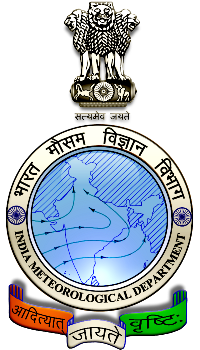

IITM Earth System Model
Developed a state-of-the-art climate model from India suitable for long-term climate studies is a critical requirement in order to generate reliable future projections of the global and regional climate, and particularly the Indian monsoon rainfall. The CCCR-IITM has developed an Earth System Model, IITM-ESM by incorporating earth system components in the Climate Forecast System (CFS) from National Center for Environmental Prediction (NCEP, USA), and thereby transforming the CFS seasonal prediction model to a long-term climate model. More details are presented in “IITM Earth System Model: Transformation of a Seasonal Prediction Model to a Long Term Climate Model”, Swapna et al., BAMS, 2015..The IITM-ESM marks a successful climate modeling development for contributing to the forthcoming CMIP6 with DECK, historic and GMMIP simulations, a first from India.
Climate Projections for South Asia and data extraction tool
The CCCR at IITM focus on the development of new climate modelling capabilities in India and South Asia to address issues concerning the science of climate change. CCCR-IITM has generated an ensemble of high resolution dynamically downscaled future projections of regional climate over South Asia and Indian monsoon, which will be useful for impact assessment studies and for quantifying uncertainties in the regional projections. A brief overview of this core climate change modeling activity of CCCR-IITM was presented in an Interim Report on Climate Change over India.
Assessment of Climate Change over Indian Region
A new open access book on Assessment of Climate Change over the Indian Region has been published. The book discusses the influence of human-induced global climate change over the Indian subcontinent and the regional monsoon, the adjoining Indian Ocean and the Himalayas. It also briefly discusses policy relevant information based on robust scientific analysis and assessments of the observed and future projected climate change over the Indian region. The assessments presented in this book are based on peer-reviewed scientific publications, published IPCC reports, analyses of long-term observed climate records, paleoclimate reconstructions, reanalysis datasets and climate model projections from the World Climate Research Programme (WCRP) through their Coupled Model Intercomparison Project (CMIP) and the COordinated Regional climate Downscaling EXperiment (CORDEX South Asia) scientific projects.
IPCC Sixth Assessment Report
The IPCC published Sixth Assessment of Climate Change Report (Working Group I)
Interactive Atlas for Regional information of Climate Change Projections
The novel AR6 Working Group I Interactive Atlas allows for a flexible spatial and temporal analysis of both data-driven climate change information and assessment findings in the report. It includes two components:
- The Regional Information component provides access to climate change information (variables and derived indices) from the main datasets used in the report.
- The Regional Synthesis component allows the exploration of key synthesized assessments building on multiple lines of evidence across the Working Group I reference regions. This component supports the SPM and is being updated to align with the final approval version (to be presented in late September).
Important links:
Visitors Since
Contact Us
1st October, 2022
- 2
- 7
- 9
- 8
- 6
- 1
Head, Climate Monitoring and Prediction Group, India Meteorological Department, Shivajinagar, Pune. Email : crs-cmpg@imd.gov.in
Design, Developed and Maintained by IT Cell, O/o Climate Research & Services, Pune